It’s been a while since I visited The Secret Garden. I first read it when I was fifteen, and sick with an allergic reaction to some medication, which is the only reason I can remember how long ago it’s been since I read it. Ages ago.
My uncle had given me a beautiful hardcover copy of it a few years earlier, on Christmas Eve of 1989. I know this date because it’s scrawled on the bookplate inside in terrible handwriting because he’d broken his arm and was in a cast that year.
But the book was almost immediately cast aside. It wasn’t that I didn’t like reading when I was a kid; I just had no experience with (and no taste for) classics. I was used to potato chips and candy and twaddle, not the stuff that really fills and grows us. My sole experience with classics came from school, where the books were mostly dissected and overanalyzed rather than appreciated, and had I not gotten sick that time in tenth grade, I never would’ve been inclined to pick it up for my own enjoyment — until many years later, out of school, when I started reading classics on my own.
So hey, did you hear? We’re starting The Secret Garden by Frances Hodgson Burnett, and we’d love for you to join us.
We’ll be reading about 40-45 pages a week for the next six weeks, and if you don't have a copy yet, you can get it free online here, or free in audio here, or buy it used or new at ThriftBooks here.
One of the things I’m appreciating in The Secret Garden this time around, right from the start, is that it’s a much more realistic portrayal of what happens in childhood neglect, as opposed to the rainbows-and-unicorns message of so many books (Oliver Twist and Anne of Green Gables, I’m looking at you) about children magically overcoming or even thriving on abuse and neglect.
Mary Lennox is an unloved, neglected girl who has been cared for by almost no one, and therefore cares for no one. That’s the beginning of her story, not the end, but it’s important to be honest about how ugly some of our stories start off.
[Her mother] had not wanted a little girl at all, and when Mary was born she handed her over to the care of an Ayah, who was made to understand that if she wished to please the Mem Sahib she must keep the child out of sight as much as possible. So when she was a sickly, fretful, ugly little baby she was kept out of the way, and when she became a sickly, fretful, toddling thing she was kept out of the way also…by the time she was six years old she was as tyrannical and selfish a little pig as ever lived.
— The Secret Garden, chapter 1
We’ve had some discussion about this in our Telegram group since finishing A Girl of the Limberlost, which is slightly (very slightly) more realistic in its portrayal of childhood neglect with Billy, the young son of a dying alcoholic. Billy is affectionate and caring and tries to do good, but creates all sorts of mischief and chaos. Somehow he fairly quickly becomes almost a model citizen of childhood in spite of starvation and abuse and other trauma, and this sounds like it may be typical of Gene Stratton Porter’s approach to these kinds of characters.
From Elizabeth, in our group:
I finished GOTL early, so read The Harvester, and last night I finished re-reading Freckles. I enjoyed it, and was kind of in awe of the author’s descriptive powers.
But I noticed in Freckles the same thing that bugs me in Oliver Twist — the idea that one inherits righteousness and good character from one’s parents. This ideology goes along with the idea of the noble savage — the innocence of mankind. Freckles is as wonderful as he is because his parents were — regardless of all he experienced in the orphanage. That idea is unrealistic and it bothers me.
However, it’s a very enjoyable piece of fiction!
It was enjoyable! But that part bugs me, too. I’m desperately trying to stay out of “adoptive mom” mode, avoiding a lecture on how early childhood attachment affects us and our ability to attach to others later in life…suffice it to say, if a child has no attachments in the beginning (like Mary) it makes sense that she would not easily attach to others later, either.
So here we are with The Secret Garden and we’ll see how it compares. Mary Lennox isn’t the only character in the book with a rough beginning and I’m curious to see how much reality versus rainbows and unicorns will be in the book…because it’s been ages since I read it, and I just don’t remember.
Want to delve deeper and hone your writing skills while we read The Secret Garden, and also grow in your personal wholeness, too? This is a great book for exploring how we rise above the imperfections and immaturity of our youth, and also how we can grow from loneliness to belonging.
If that interests you, there are two inexpensive options for writing coaching, both of which are light-yoked, flexible, and private — no one will see what you write besides me and my cat, promise.
Option 1: We'll write two short papers (less than 1000 words each) in this course of Gaining Ground, and you'll get private coaching and feedback. This is a 6-week track, so papers are due every three weeks and you still have tons of time to get the first one in. Info and sign up here.
Option 2: If you'd like something even lighter, you can sign up for just 500 words a month by upgrading to a paid subscription here on our Substack. More info here.
Happy reading, writing, and growing in wholeness,
Shannon
P.S. Fun fact: The uncle who gave me my copy of The Secret Garden is the same uncle who, seven years later, hired a guy named
to work at his movie theater…where I happened to be working, too…and the following year, we were married. 🙌🏻




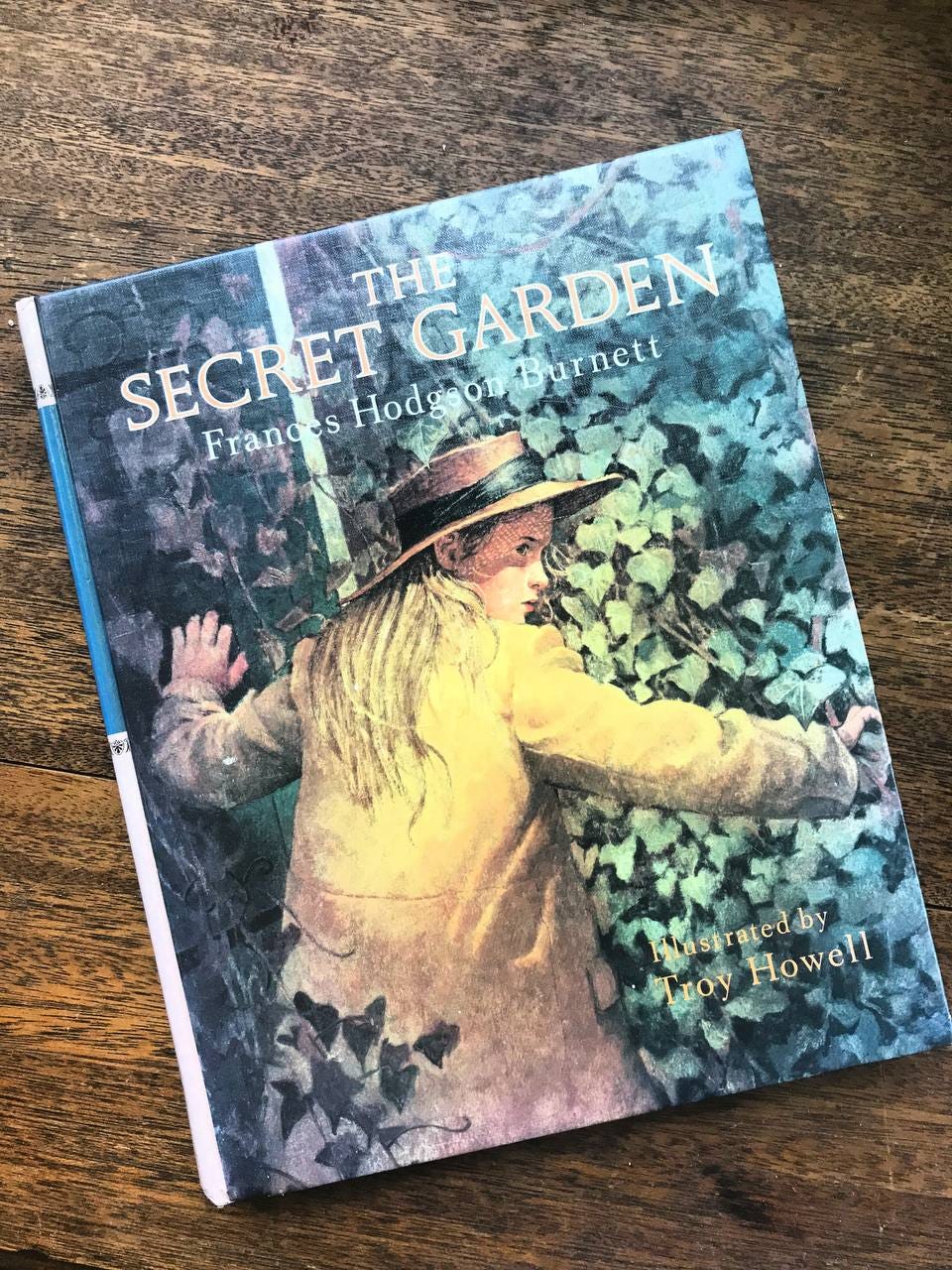
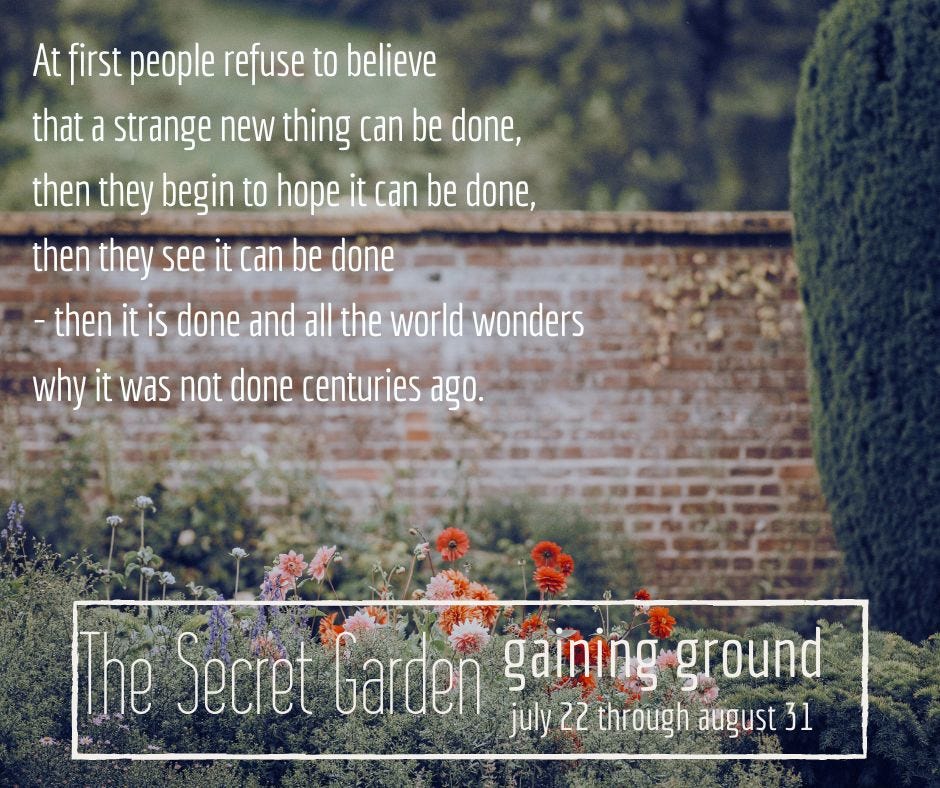
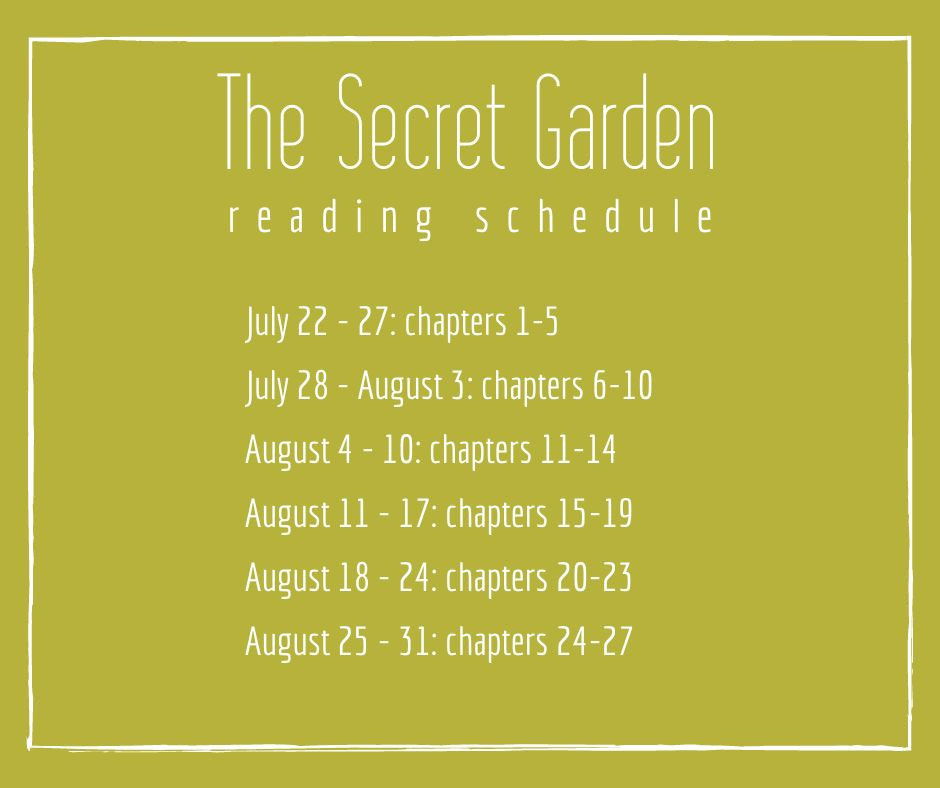
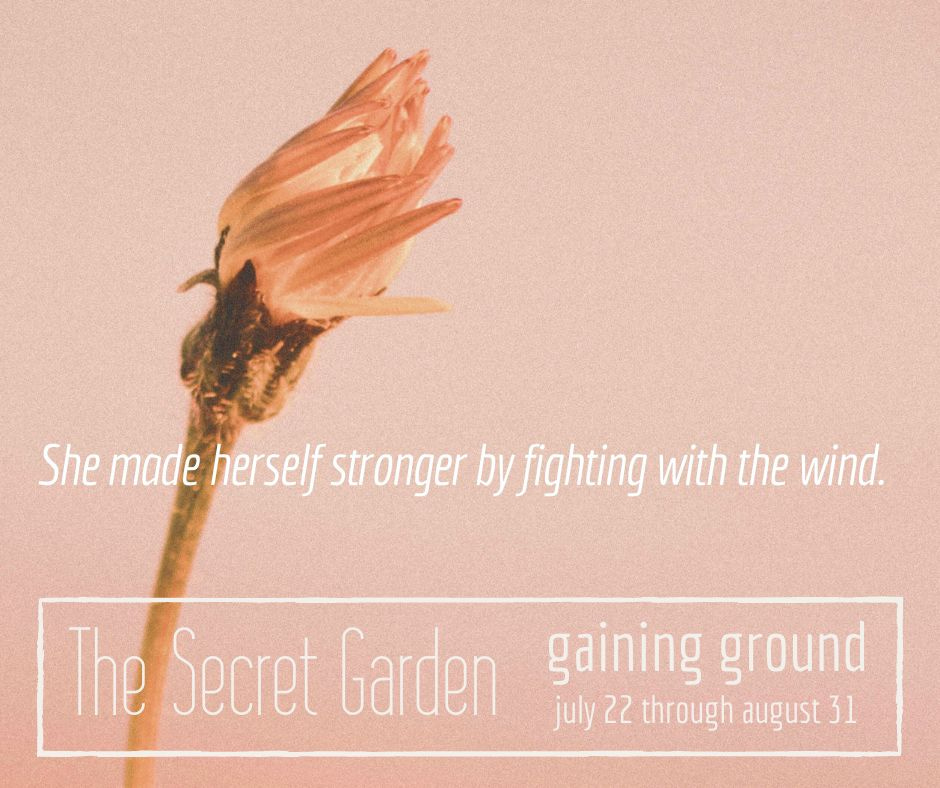
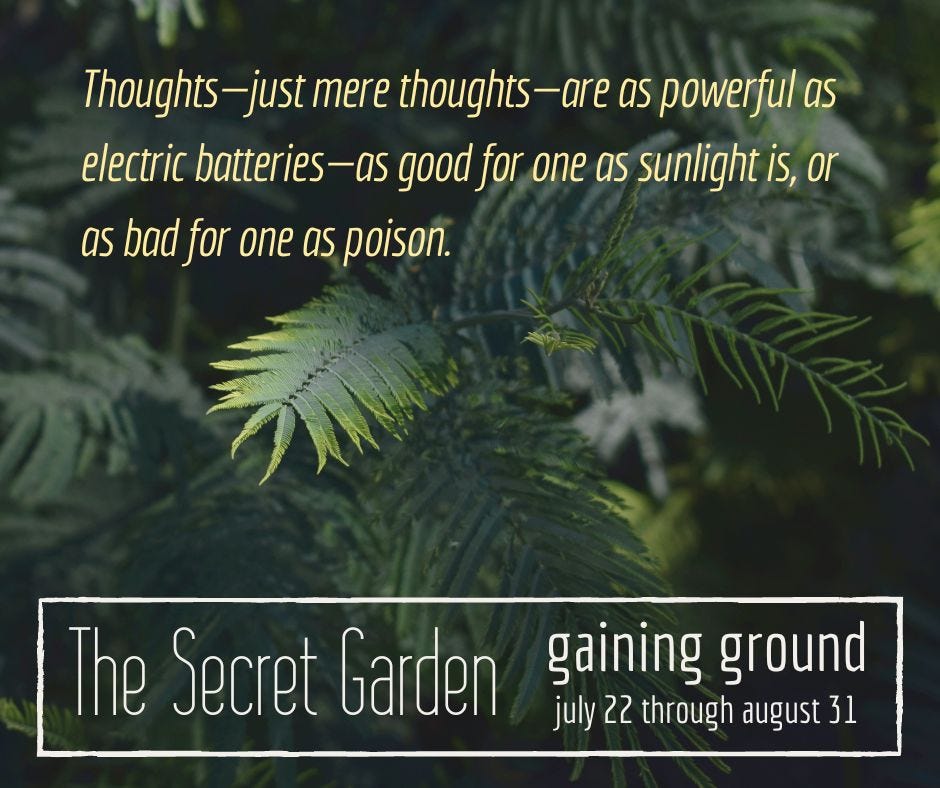
I first read The Secret Garden as an adult and I loved it! It was so hopeful.
Thanks!